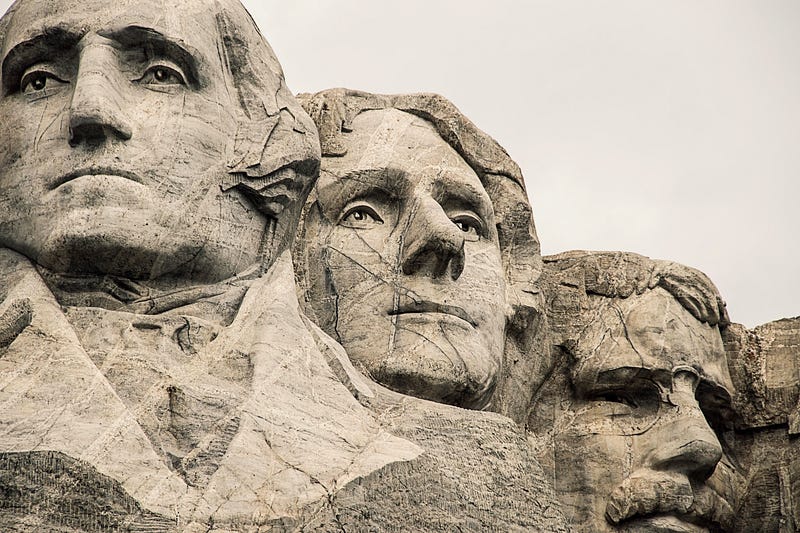A Discussion “The Social Responsibility of Business: Milton Friedman Reconsidered”
As an economics professor, I know I have some misconceptions to overcome every semester a new crop of students appear in my intro microeconomics course.
Economics is about greed. It is immoral. Capitalism is bad.
Elrick and Thies (2018) offer an example of these bad ideas being proliferated due to a bad headline incorrectly summing up Milton Friedman’s free market ideas. And over the years, that incorrect view has been tagged to anyone professing free market views in the vein of Friedman.
Adam Smith’s view of the Invisible Hand first captured me because it says the competitive forces of a market will direct the self-interested actions of the people to an outcome that is actually best for all.
And better than anyone could plan because no one has all the information that is tucked away in people’s hearts and minds (although that is taking us to “The Knowledge Problem” noted by F. A. Hayek, a story for another day.)
Smith recognized people were self-interested, which is not the same thing as selfish. Self-interested is trying to make the best of your situation, but not at the expense of others. Selfish goes further — the outcome for others does not matter.
Whatever system you put someone in, capitalist, socialist, fascist, they will strive to the best of their ability to pursue their self-interest. The market system allows the most freedom to accomplish this and as a result, our resources are allocated to their best use.
They produce products people want because how else can you sell it? So we end up with a system trying to serve as many needs as possible.
But, Dr. Clardy, what about income inequality? Unfortunately, we start with inequality and end with it. We do not have the same talents, abilities, interests, and opportunities. It is not surprising we end up with different outcomes.
That is why the first book Adam Smith wrote was about morality. The market system works well with a moral people. You need people who are trustworthy, who live up to their promises, and who care about the less fortunate.
So what does all of this have to do with Milton Friedman?
First of all, he was a free market economist who taught at the University of Chicago, and he achieved fame, as much as an academic can, primarily during the 1960s and 1970s.
He even had a school of thought, Monetarism, which had some good ideas but has primarily been left in the past. It fit in with the neoliberal school of thought that has been the dominant paradigm in economics most recently.
What Elrick and Thies are discussing is the perception that Friedman only cared about business making profits. A misperception that has been smeared onto free market economics in general.
Specifically, Friedman published a piece in 1970 in The New York Times Magazine. The headline writer went with, “The Social Responsibility of a Business is to Increase Its Profits.”
Now of course writing headlines is a challenge. It needs to be catchy. It needs to be short. But it also should be accurate.
This one fails in that last criteria. Losing Friedman’s full meaning really turns into a slight against him and his ideas.
Do you want to live in a world where businesses’ sole purpose is profits? No concern for their employees, the environment, the future?
Some may think they already do. Enron anyone? But the fact Enron stands out in part shows that not all companies are Enron.
And in part it is things like this incorrect headline that has set this tone for anyone who dares to say profit seeking has a good side.
What did Friedman really mean? The authors quote him from his foundational work, Capitalism and Freedom
…there is one and only one social responsibility of business — to use its resources and engage in activities designed to increase its profits so long as it stays within the rules of the game, which is to say, engages in open and free competition without deception or fraud. (p. 297)
Did you get that? No endorsement of Enron’s unethical, fraudulent behavior. No one can argue that Enron engaged “in open and free competition without deception or fraud.”
Who knows if the headline writer actually meant to paint Friedman in such an unfavorable and one dimensional light.
But, those who see free markets as the solution have been fighting that perception ever sense.
It is not that we free market proponents only want businesses maximizing profits. We want them doing that with honesty, with an eye to sustainability for its employees and the environment, and within a competitive market with strong, legally enforced property rights.
But that is kind of long for a headline! And it is a lot easier to argue against free markets if you can make it seem like it is only about greedy businesses.
Conclusion
As the authors point out, Friedman was writing in 1962 long before we came up with the concept of “corporate social responsibility,” but that Friedman embraced it once it was developed. (p. 304)
Intentional or not, this association of those with free-market-loving, profit-seeking-endorsing views also being OK with theft, fraud and profiteering makes it easy to dismiss our view without ever having to truly argue against it. Who is going to stand for those whose views led to Enron?
But as Elrick and Thies conclude,
Seeing the difference invites an exciting new research paradigm: how to best discipline business and businessmen to their long-run self interest, and how to best monitor and police business and businessmen when self-discipline fails. Society and many members of society have suffered at the hands of corporatism masquerading as capitalism. (p. 304)
We would all be better off if we were able to sever the ties between large corporations and government to actually allow free markets to function.
For example, it was recently reported that Amazon would stand with the new administration in favor of the $15 minimum wage. Makes Amazon sound noble and caring?
No, it is just easier for them to bear the higher costs of labor as a big company than it is for any smaller companies competing with them.
That does not fit Friedman’s call for business to use its resources to increase its profits within the rules of the game. That is using its power to rewrite the rules in a way that benefits them.
I don’t say this to pick on Amazon — because they are hardly unique in this attempt — but to highlight that our real threat is the alliance of business and government, corporatism, at the expense of capitalism.
The free market can only work in an open and free system. It is not that the market system cannot work but that it is being dominated by large companies.
A system dominated by large companies with monopoly or near-monopoly power is not going to lead to the optimal outcome for all because that market power short circuits market discipline.
We should be fighting to make markets more competitive so they can best keep businesses in check instead of setting the rules for their own benefit.
References: Elrick, John and Clifford Thies (2018). “The Social Responsibility of Business: Milton Friedman Reconsidered” Journal of Markets and Morality 21(2): 297–307.




